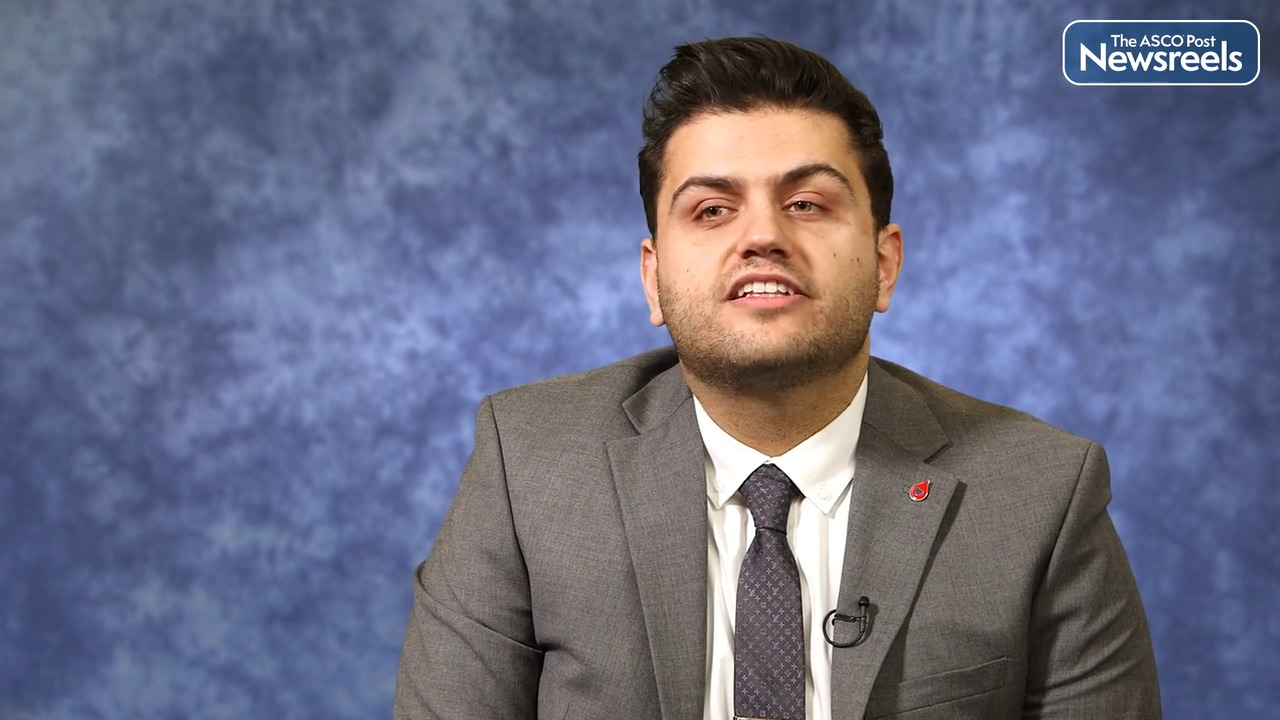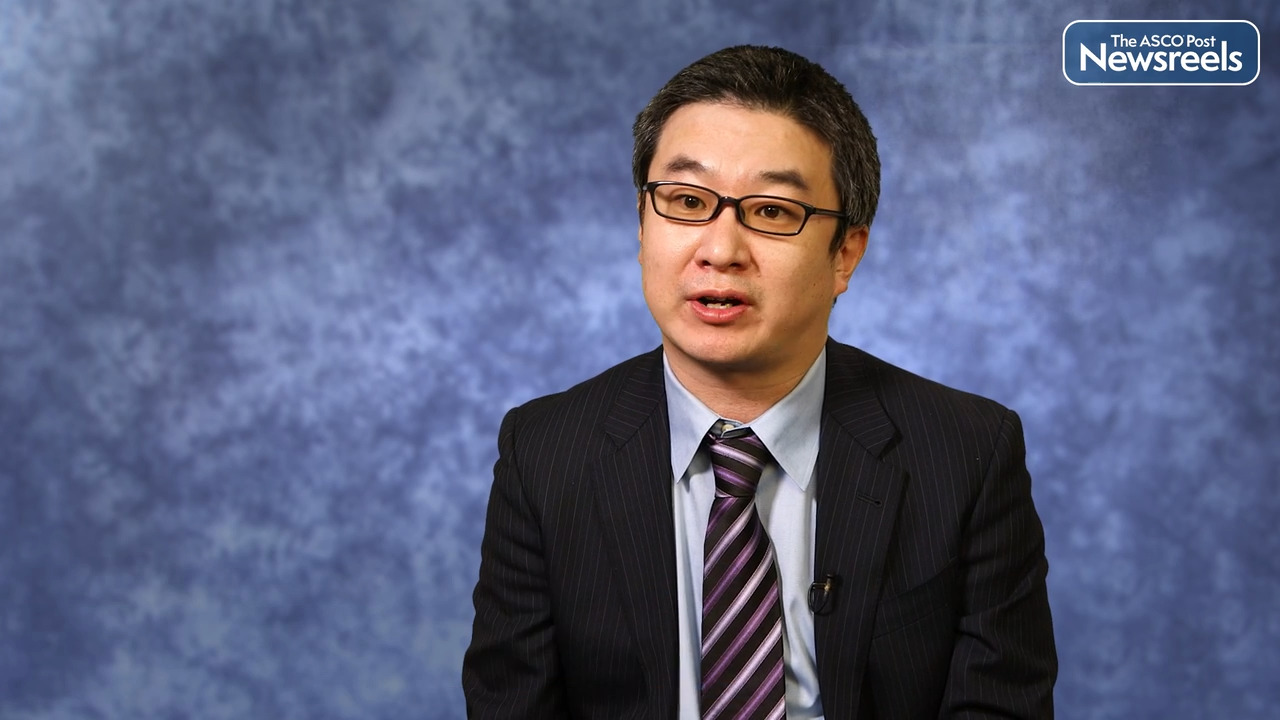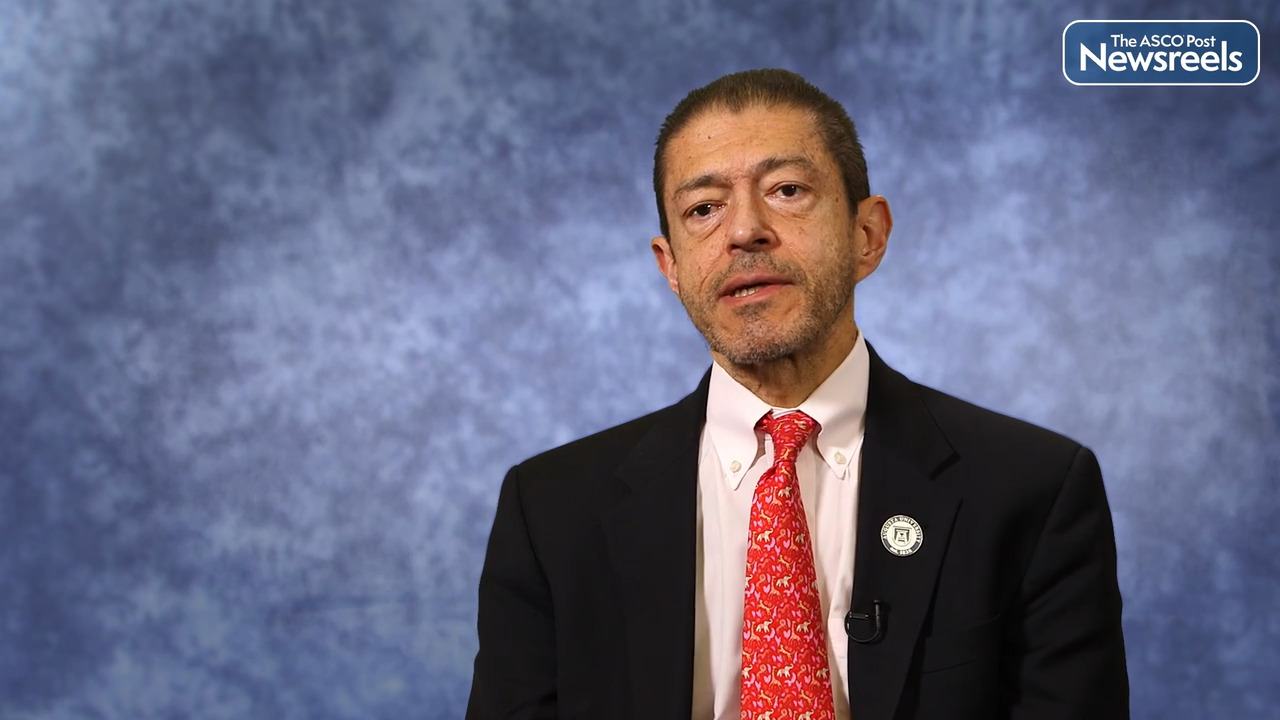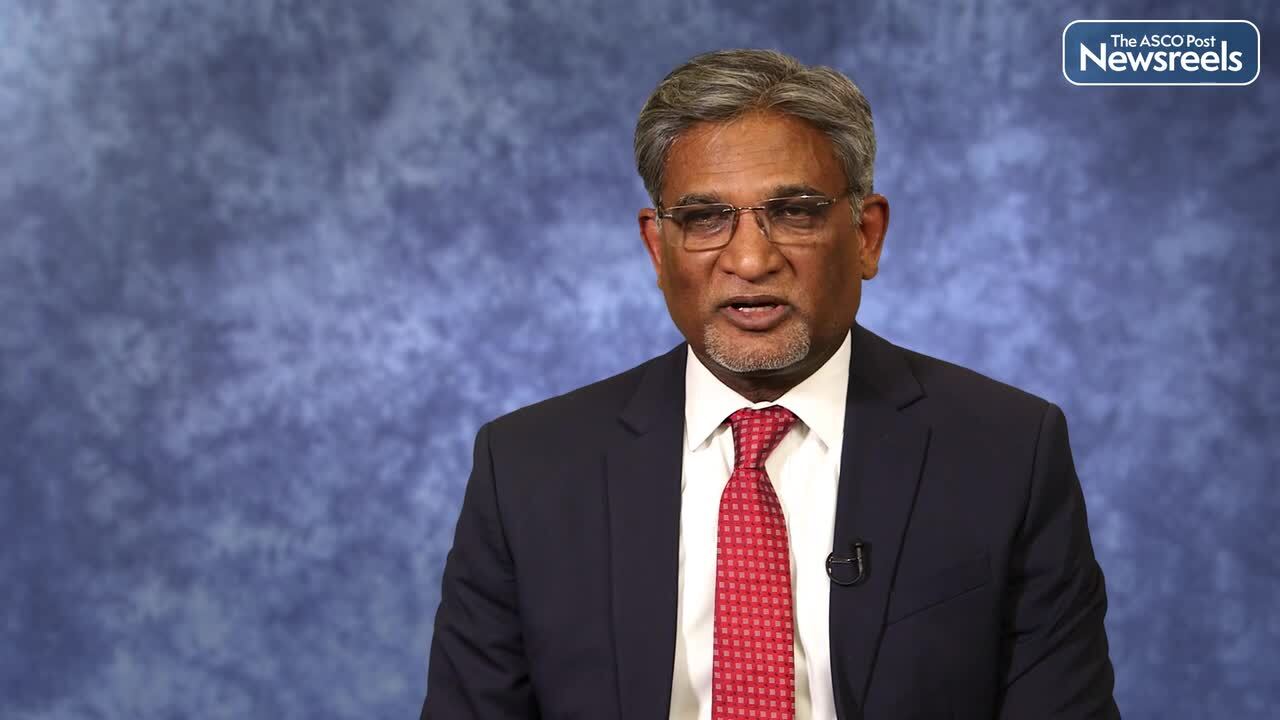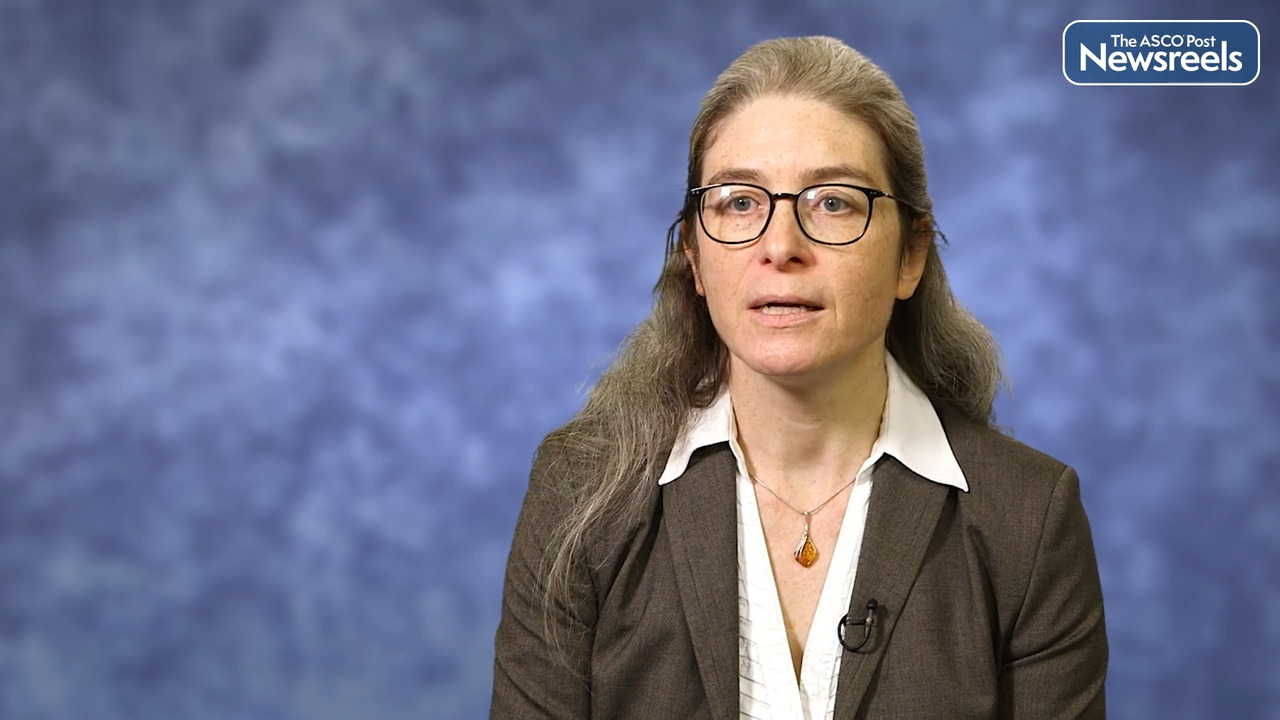Transcript
Disclaimer: This video transcript has not been proofread or edited and may contain errors.
The standard of care for multiple myeloma patients with a new diagnosis and for patients that are transplant eligible in Canada, is to first to start with a bortezomib-based induction and then go with a high dose melphalan, an autologous stem cell transplant, followed by lenalidomide maintenance until progression.
So, the aim of our study was really to look at the outcomes in details of this patient population in Canada, in the real world setting. So, using our national myeloma database from the C M R G, known as the Canadian Myeloma Research Group, all the patients who received an autologous stem cell transplant for multiple myeloma in the first line setting, from January 2007 to December 2021, were included. So, this gives us 3,800 patients approximately, and most of them received a bortezomib-based induction, mostly being CYBORD, in 72%. We had mostly single-transplant patients. Only 8% received tandem transplant, and it was mostly in high risk patients.
18% of the population were high risk. And what's interesting to see is that, overall with one single transplant, median PFS was around 35 months, and median overall survival was around 10 years. And median overall survival was around 10 years for approximately all subgroup patients, except in high-risk patients; so high-risk patients had inferior outcomes. For consolidation therapy, it's not root routinely available in Canada, so only a few patients received that kind of therapy, about 5%. It was mostly a regimen combining a ubiquitin and a proteasome inhibitor. Globally, consolidation leads to a better PFS, but with no significant gain on OS.
For maintenance therapy, about half of our court received maintenance therapy, and it was mostly lenalidomide-based regimen. Maintenance therapy was leading to a significant benefit on PFS and OS, in all risk subgroups, although it does not completely abrogate the negative impact of high risk cytogenetics in the high risk patients.
Globally, with the lenalidomide-based maintenance regimen, the PFS was around 4.5 years, and the overall survival around 13 years. As you can see, this real world data covers about 15 years in our court of timeline. And it really shows that the integration of bortezomib and lenalidomide in the transplant sequence, leads to an overall survival of about 10 years in most autologous stem cell transplant patient. It also highlights the beneficial contribution of lenalidomide mainstream therapy in patients without and with high risks, and also in patients receiving a second course of induction. Indeed, these patients had significantly inferior outcomes compared to those receiving only one induction regimen, but with maintenance therapy, outcomes would were comparable even though you received one or two induction regimen. So, this really highlights the importance of maintenance therapy in these subgroups.
Right now, further analysis are ongoing, to look at relationship between treatment outcomes, patients characteristics, and these results will really serve as Canadian benchmarks to compare with newer approaches that are eventually coming.
